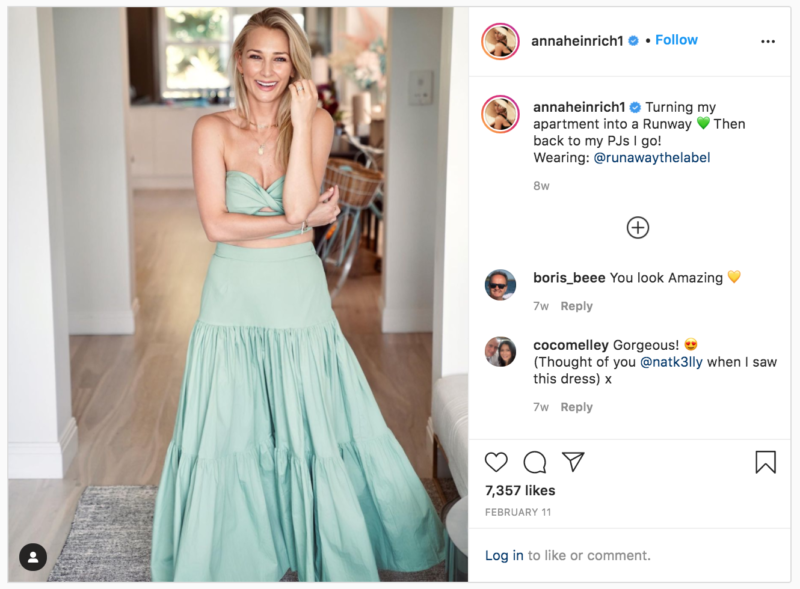Insta post by Anna Heinrich first case to breach AANA’s new distinguishable ad rule
An Instagram post by influencer and Bachelor winner, Anna Heinrich, is the first case to breach the new distinguishable advertising rule in the Australian Association of National Advertisers (AANA) Code of Ethics.
The updated Code of Ethics came into effect on 1 February, with Section 2.7 stipulating that advertising and marketing should be clearly distinguishable and introducing the hashtags #ad, #advert or #paidpartnership as the preferred terms for marketing content on social media as these are more easily understandable for consumers than other common hashtags, #sp, #spon, #gifted or #collab.
Heinrich’s post shows her posing in a green dress from brand Runaway The Label alongside the caption ‘Turning my apartment into a Runway. Then back to my PJs I go! Wearing: @runawaythelabel’. Complainants wrote that the post had a ‘lack of regard to Australian law’ and had ‘no sponsorship transparency’.

The Instagram post found to be in breach of the AANA Code of Ethics

